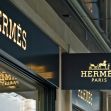After seven days of hearings, a US federal judge placed a temporary block against the merger plans of Tapestry, Inc., a luxury conglomerate including brands such as Kate Spade New York, Coach New York, and Stuart Weitzman with Capri Holdings, the company that owns Versace and Michael Kors.
Jennifer L. Rochon, Judge of the United States District Court for the Southern District of New York, agreed with the Federal Trade Commission’s (FTC) antitrust case against the companies, creating worldwide ripples across the fashion world and possibly ending the chances of the giant fashion companies’ merger.
The new ruling in effect blocks the proposed merger permanently since the companies would now need to endure another review by the FTC, which would not be completed before the merger contract’s February 10 termination date.
Judge Rochon said in her ruling that the companies are free to defend the deal before the FTC and are not required by their agreement to abandon it if it does not close.
In court, the fashion firms argued that since handbags are “nonessential,” consumers can simply not buy them if they become too expensive. In contrast, Judge Rochon said that this argument "ignores that handbags are important to many women, not only to express themselves through fashion but to aid in their daily lives.”
The temporary block of the highly anticipated fashion merger resulted in Capri’s shares taking a nosedive by over 50 percent after the ruling on Thursday. However, Tapestry, Inc. shares rose about 20 percent on the same day.
The Judge ruled that the merger would lead to “the loss of head-to-head competition” since Tapestry and Capri Holdings both are “close competitors” in the ‘affordable’ luxury handbag niche. Judge Rochon said that the merger would hurt consumers and “reduce” competition in the highly profitable ‘affordable’ luxury handbag category. Her decision follows the FTC lawsuit, six months ago, to block the $8.5 billion purchase of Capri Holdings due to alleged antitrust violations.
The FTC at the time said the proposed merger would squash “head-to-head competition” between the two companies, who both lead international sales of the ‘affordable’ luxury handbag sales. In their suit, the FTC said that the merger might threaten the jobs of many thousands of employees since the combined staff among both Tapestry, Inc. and Capri Holdings includes around 33,000 people.
Henry Liu, director of the FTC’s Bureau of Competition, released a statement about the FTC suit against the merger, saying, “With the goal to become a serial acquirer, Tapestry seeks to acquire Capri to further entrench its stronghold in the fashion industry.”
In recent months, the FTC has actively targeted other major mergers in the US. In February, the FTC sued to block a $24.6 billion mega-grocery merger between Albertsons and Kroger. In that case, the agency said the lack of competition due to a merger would create higher prices in their grocery stores plus lower payments to workers. After that ruling, both Kroger and Albertsons said they would sell off some of their stores to lessen the FTC’s issues.
If successful, the Tapestry, Inc. and Capri Holdings merger would create the fourth-largest luxury goods company across the globe.
In a joint statement after the FTC ruling six months ago, Tapestry, Inc. and Capri Holdings said they strongly disagreed with the FTC’s decision.
“The market realities, which the government’s challenge ignores, overwhelmingly demonstrate that this transaction will not limit, reduce, or constrain competition,” Capri noted. “Tapestry and Capri operate in the fiercely competitive and highly fragmented global luxury industry. Consumers have hundreds of handbag choices at every price point across all channels, and barriers to entry are low. ”
Various factors including price, materials and manufacturing locations differentiate affordable luxury handbags from their luxury and mass-market cousins, the judge wrote.
In court, attorneys for Tapestry disagreed with the judge, arguing that the merger would enhance and ‘reinvigorate’ the Michael Kors brand plus create more competition in the ‘affordable’ luxury handbag niche.
Tapestry added that “there is no question that this is a pro-competitive, pro-consumer deal and that the FTC fundamentally misunderstands both the marketplace and the way in which consumers shop.”
The ruling follows approval of the merger by regulators in Japan and the European Union earlier this year. Now, with the U.S. judge’s agreement to uphold the FTC ruling against the merger, the two companies are expected to appeal.






